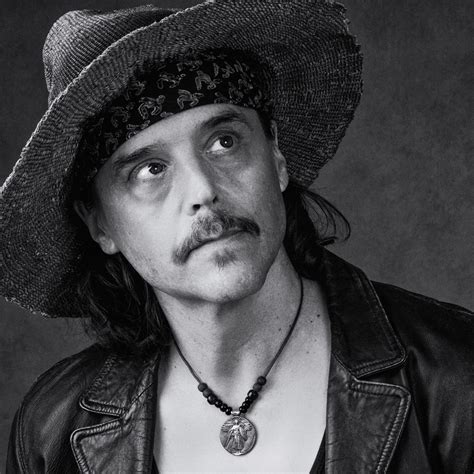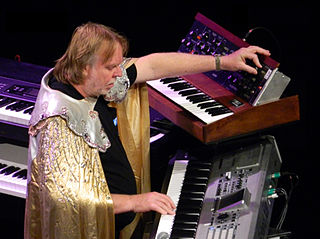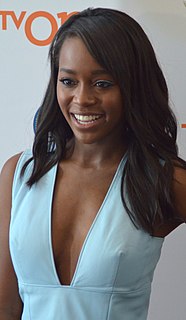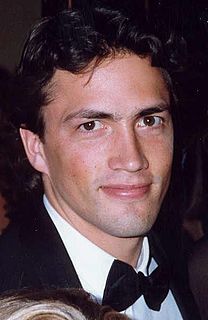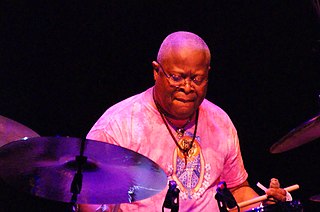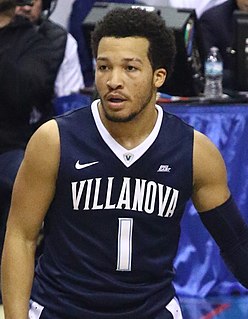A Quote by Moshe Kasher
I learned as a really young kid, when my dad was telling me one story and my mom was telling me another that, even as a 5-year-old boy, there was no way that both of these stories are true. Something in the middle is true, and I have to figure out what it is, what the truth is, and I never did quite figure that out.
Related Quotes
I'd thought I'd constructed a really wonderful book, and the teacher told me that my story basically began on page fifty, and that I should throw out everything prior, or figure out a way to weave only the most important information back into the story, and keep the action moving forward. Wow. That was a really humbling experience. A real eye-opener. Made me realize there are so many aspects involved with telling a story.
I learned an invaluable lesson from a kid in Argentina when we were playing Buenos Aires in 2002. I came out of the hotel and this 16-year-old-boy asked me to sign his copy of my Six Wives of Henry VIII album. As I was signing it I asked him 'what does a 16 year-old like about this old music?' and he looked at me, quite hurt, and said, 'it might be old to you, Mr Wakeman, but I only heard it for the first time last week. When you hear something for the first time, it's new.' I've never forgotten that.
I could never figure out or probably did not take the trouble to figure out what the great philosophical problems are about. The momentous statements I come across are at best a storm in a teacup. There are quite a number of people who have a vested interest in the stuff, make a noble living out of it, and they conspire with one another to keep it alive.
In this day and age, when there are so many people creating work online and writing their own shows, I wouldn't tell another actor, 'If you can do anything else go do that.' I would tell them to figure out the story they want to tell, to figure out what artists inspire you and why, and then figure out a way you can create that for yourself.
There's no quit in our family. Our dad was the chief proponent of that. [On the set] we were constantly telling each other, Stay true to the story, we know that we love each other, keep communication open. We knew how unique this was-you're doing a movie that really could be put out there all over the world, and you're telling this personal story about your family.
The conventional wisdom is - people say this all the time - you should only write something when you're far enough away from it that you can have a perspective. But that's not true. That's a story that you're telling. The truth of it is here, right now. It's the only truth that we ever know. And I'm interested in that truth and the confusion being part of the experience and sorting it your way through and figuring it out.
What's your story? It's all in the telling. Stories are compasses and architecture; we navigate by them, and to be without a story is to be lost in the vastness of world that spreads in all directions like arctic tundra or sea ice. To love someone is to put yourself in their place, we say, which is to put yourself in their story, or figure out how to tell yourself their story. Which means that a place is a story, and stories are geography, and empathy is first of all an act of imagination, a storyteller's art, and then a way of traveling from here to there.
My real purpose in telling middle-school students stories was to practice telling stories. And I practiced on the greatest model of storytelling we've got, which is "The Iliad" and "The Odyssey." I told those stories many, many times. And the way I would justify it to the head teacher if he came in or to any parents who complained was, look, I'm telling these great stories because they're part of our cultural heritage. I did believe that.
I feel like there's a voice in my head, always, telling me every idea is brilliant, and another telling me every idea is the worst. And they argue in my head until somebody wins, until I solicit an audience to be, like, 'Will you help me figure this out? Is this the best or the worst idea?' And they tell me!
You can think as Einstein as much as you want, but when you come in contact with another person as a work unit of some kind, you have to think as one. You have to figure out all the things that you've studied and that your mind is telling you, and then you have to figure out how to make it work as one, or you have a broken down team.
He's always been tough on me, but I've had to figure out when he's being a coach and when he's being a dad. Once I figured that out, it was much easier. It's definitely tough, something that took years to figure out. Just knowing he was looking for what's best for me, not just yelling at me as a parent. It took maturity.


